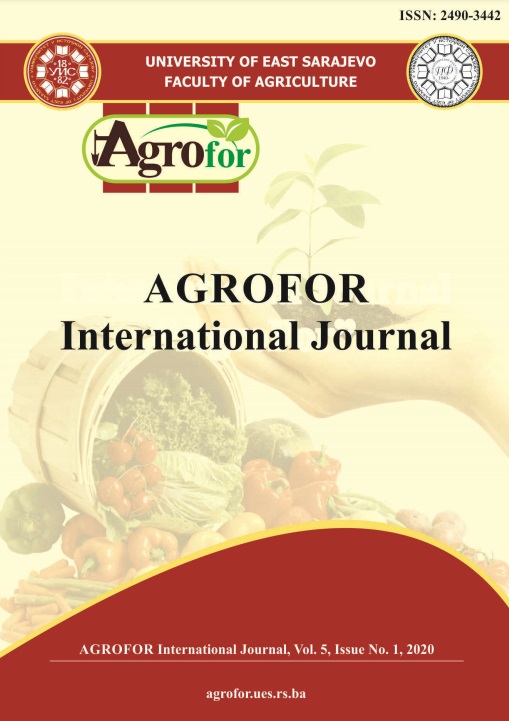EFFECT OF MICROFINANCE ON SMALLHOLDER FARMERS’ LIVELIHOOD IN RWANDA: A CASE STUDY OF NYAMAGABE DISTRICT
DOI:
https://doi.org/10.7251/AGRENG2001085MAbstract
Microfinance in Rwanda is considered as one of the most crucial mechanisms in the implementation of the Government program to reduce poverty and to increase economic growth. However, despite the effort made by the Government of Rwanda
to put in place microfinance institutions in rural areas, little is known about the effects of microfinance on smallholder farmers’ income in Nyamagabe District of Rwanda. This study aimed at examining the contribution of microfinance services to the income of smallholder farmers in Nyamagabe District. Primary data were collected from 240 respondents randomly selected in 3 sectors of Nyamagabe District using structured questionnaires. Data were analyzed using descriptive statistics to describe the socio-economic characteristics of the respondents and Propensity Score Matching was used to assess the effect of microfinance on smallholder farmers’ livelihood. The results from descriptive statistics showing that 117 respondents were participants in microfinance services and 123 were nonparticipants and more men were committed to participate and to access microfinance services than women. Results from Propensity Score Matching Model using both Kernel Based Matching and Nearest Neighbor Matching showed that the households participating in microfinance services increased their total annual income by 256,674 Rwandan francs and 228,246 Rwandan francs more than non-participants, respectively. The study recommended that smallholder farmers should be encouraged to participate in microfinance services to increase their income and agricultural productivity. The use of SACCOs and microfinance services needs to be promoted in order to provide an instrument for mobilizing savings and extending credit.

